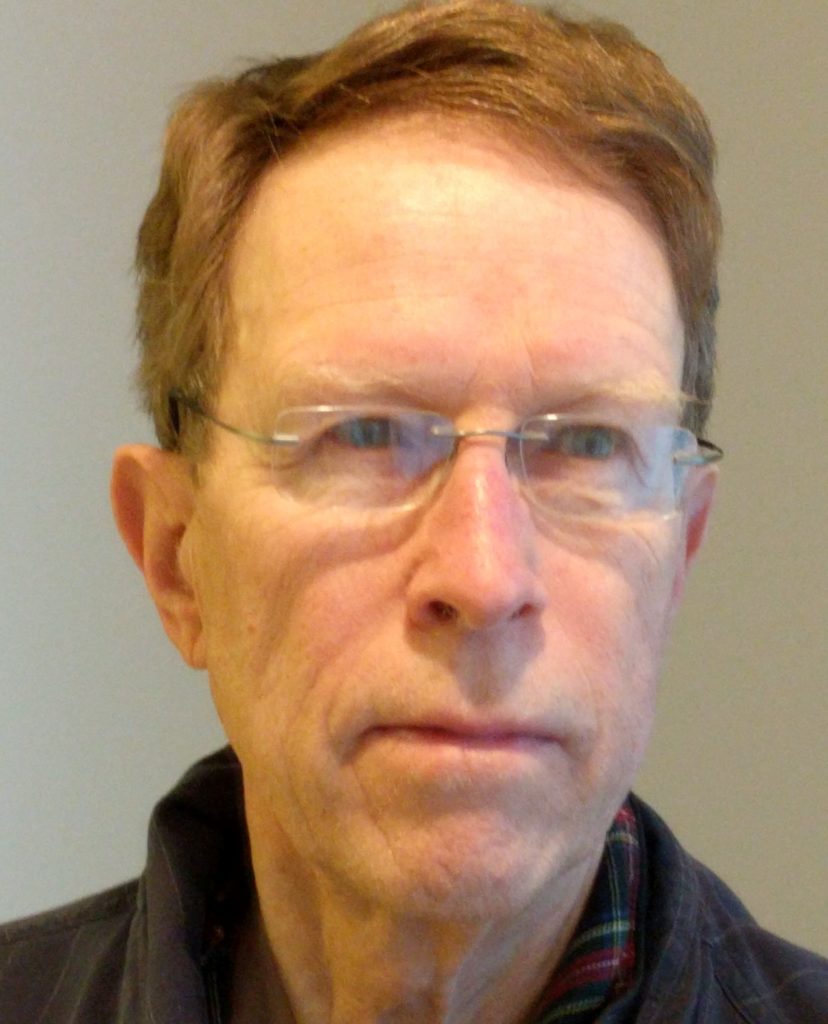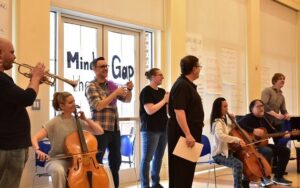Charles Heckscher knows something about trust. Or at least, he thought he did.
At Rutgers University in New Jersey, where he is a professor, Heckscher directs the Center for the Study of Collaboration in Work and Society – a center whose purpose is to develop the understanding of effective collaboration, both as theory and as practice. His research focuses on organization change and its consequences for employees and unions, on the possibilities for more collaborative and democratic forms of work, and on the challenge of rebuilding trust in societal institutions.
So when he wrote “Trust in a Complex World” in 2015 – a prize-winning book about the decline and potential revival of societal trust – Heckscher believed he had some answers that could be valuable for societies as a whole.
The tempestuous 2016 US presidential election helped show that he’d fallen short. “I was hoping to come up with some really practical suggestions,” says Heckscher, who leans Blue. “But I ended up with a diagnosis and not a solution.” So he committed to writing another book that would emphasize actions that ordinary people could take to regenerate and sustain trust.
That proved easier to describe than to do. Heckscher found a way forward when, in 2017, he heard about Braver Angels. “I’d been looking for an organization like this,” he recalls. Deciding that Braver Angels’ methodologies and processes already demonstrated much that was practical and solutions-oriented, he joined the organization, and contacted co-founders David Blankenhorn and Bill Doherty to begin a series of conversations about trust and collaboration – and about how he could leverage his talents and experience and networks to augment more of BA’s ideas and initiatives.
The idea of forming an academic council came up. But Blankenhorn proposed another way in which Heckscher could be useful to Braver Angels: working with a Red counterpart — Dan Sockle – to forge partnerships with an array of other organizations whose missions were aligned with that of Braver Angels. “Dan and I made connections to potential allies like Rotary clubs and the National Institute for Civil Discourse,” says Heckscher.
But he was drawn to working in the public sphere, and his conversations with Braver Angels’ Steve Saltwick led to the formation of BA’s Public Policy group, set up to explore initiatives that could engage public officials in Braver Angels’ ways. It was only a short step from that to BA’s town-halls initiative. Today, Heckscher and his Red counterpart, Lenny Greenberg, are BA’s point persons for “common-ground” town-hall events. Heckscher is also a member of the field organization, working closely with field leaders Saltwick and Lynn Heady.
Heckscher and his cohorts have piloted seven town halls over the last year and a half, refining the model to the point where it can be rolled out broadly across the U.S. Three have included real public officials, including state Senators and Representatives and a County Supervisor. (The earlier events were run with proxies.) During the first half of each two-hour event, participants break into groups and strive for common ground on an issue pertinent to the elected officials attending. Then the groups bring their conclusions to those officials for discussion. Importantly, the events do not end up advocating for this or that policy.
There’s considerable interest across Braver Angels; the Rutgers professor reports that 10 or 12 alliances are looking at hosting common-ground town halls. Over the next year or so, he and Greenberg expect to keep improving the “offering” – sharpening the programs for training moderators, a BA-formatted folder of slides, and much more – that can make it easier for local organizers and alliance leaders to start and run their own town halls.
The immediate challenge is bandwidth. Neither Heckscher nor Greenberg has the time to do more to organize town halls. “We want to spread the model further than Lenny and I alone can hope to do,” says Heckscher. “To do that, we need to train a few more organizers.” Organizing of town halls is somewhat different from organizing other types of BA events; for a start, it means finding and recruiting elected representatives after identifying topics that will fully engage both citizens and their elected officials. (If you’d like to step forward – wherever you are in the country — Heckscher and Greenberg will be trying out an apprenticeship model, enabling interested volunteers to shadow them on organizing town halls. An easy way in! Contact Heckscher at: charles@heckscher.us )
And then there’s Heckscher’s next book. “I strongly support Braver Angels because the mission is essentially to try to repair the broken bonds of trust and understanding with people who have lost faith in our system,” he says. “But the first thing I’ve learned is that this is really hard.” That said, the professor is, thanks to his exposure to and involvement with Braver Angels, a whole lot closer to being able to share truly practical ideas for repairing those bonds of trust.
The further such messages can spread, the better for Americans – for societies – everywhere.




